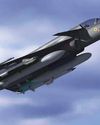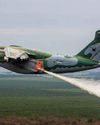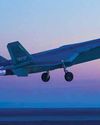
POISED TO EMERGE AS THE WORLD'S THIRD-LARGEST AVIATION market by 2030 or earlier, India's airline industry has seen a remarkable transformation in recent years. And, unsurprisingly, private enterprise has been the driving force.
For several decades after Independence, aviation was the exclusive domain of state-owned carriers. But following the liberalisation of the economy in the early 1990s, a number of private airlines were started at sporadic intervals. Various challenges including financial turmoil, regulatory issues, and fierce competition among the contenders, especially post 2003, meant that many of these private carriers had an all-too-brief existence. Even the big fish like Kingfisher Airlines and Jet Airways eventually fell by the wayside. But fast forward to 2023, and it is private enterprise all the way. Even Air India, the airline founded by JRD Tata in 1932 and nationalised in 1953, is back under Tata's wing after seven decades.
STATE OF PLAY
The Tata Group is now attempting something unique - merging four airlines into two. Vistara will be absorbed by Air India as a full-service carrier while AirAsia India and Air India Express will be merged to form a single low-cost carrier (LCC) retaining the Air India Express name. The Group's combined fleet size stands at 219 currently. Earlier this year, with the aim of rapidly growing its 24.8 per cent domestic market share and 22.96 per cent international market share, it placed what was till then the largest single order in aviation history - a mix of 470 Airbus and Boeing airliners, narrow-body as well as wide-body.
This story is from the Issue 8, 2023 edition of SP’s Aviation.
Start your 7-day Magzter GOLD free trial to access thousands of curated premium stories, and 9,000+ magazines and newspapers.
Already a subscriber ? Sign In
This story is from the Issue 8, 2023 edition of SP’s Aviation.
Start your 7-day Magzter GOLD free trial to access thousands of curated premium stories, and 9,000+ magazines and newspapers.
Already a subscriber? Sign In

BRIDGING THE GAP IN THE SKIES
Ministry of Defence sets up a committee to address gaps within the Indian Air Force with a focus on Fighter Jet Squadrons UCAVs

"WE SHOULD PUT ALL OUR EFFORTS INTO BEING SELF-RELIANT ON AN AERO-ENGINE 99 AIR MARSHAL TEJINDER SINGH, DCAS
The quest for an indigenous aero-engine remains a challenge despite the initial success of the Kaveri engine. Can it be a national mission? What is needed to achieve a higher thrust of engine for Tejas Mk2 and AMCA? The possibilities are discussed at the TDF DRDO Conference among the leaders and outstanding aerospace scientists at the Conference.

EMBRAER DEFENSE & SECURITY AN EVOLVING GLOBAL LEADER
Embraer Defense and Security’s portfolio exemplifies innovation and versatility, delivering advanced solutions across air, land, sea, space, and cyber domains to meet the evolving demands of global defence

CHINESE SIXTH GENERATION STEALTH FIGHTER: A MYTH OR REALITY
China’s unveiling of the J-36 and J-50 simultaneously demonstrates its ability to rapidly develop and test advanced fighter platforms, signifying its intent to rival the United States in air power projection

DECODING CHINA'S SIXTH-GENERATION FIGHTER AIRCRAFT PROGRAMME
China’s progress in sixth-generation aviation underscores its ambitions to project power far beyond its borders, influencing regional security dynamics and exacerbating the arms race in Asia

ESA'S PROBA-3 MISSION TAKES OFF ON ISRO'S PSLV
PSLV-CS9 vehicle carried European Space Agency’s Proba-3 spacecraft into a highly elliptical orbit as a dedicated commercial mission of NSIL, the commercial arm of ISRO

KLM: THE WORLD'S OLDEST AIRLINE STILL GOING STRONG!
In 1930, KLM began scheduled passenger service between Amsterdam and Jakarta. The Fokker F.XII plane took 10 days to reach, including 81 hours of flying time. It was the world's longest scheduled flight before the Second World War.

SPICEJET'S $90 MILLION DEAL WITH CANADIAN Q400 PLANES
SpiceJet has successfully resolved a significant dispute with Bombardier over a fleet of Q400 turboprop planes in the form of a $90 million settlement, marking the end of a prolonged legal battle that also has broader implications for the Indian aviation sector

TAPPING THE UNCHARTED WATERS
Seaplane services are expected to transform regional connectivity in India, boost tourism, create jobs, and foster economic development, particularly in hard-to-reach coastal and inland regions

FLIGHT PLAN FOR NAVIGATING BUSINESS AIRCRAFT FINANCING
The business aircraft financing market has witnessed significant growth post-pandemic, driven by increased demand for private and chartered flights